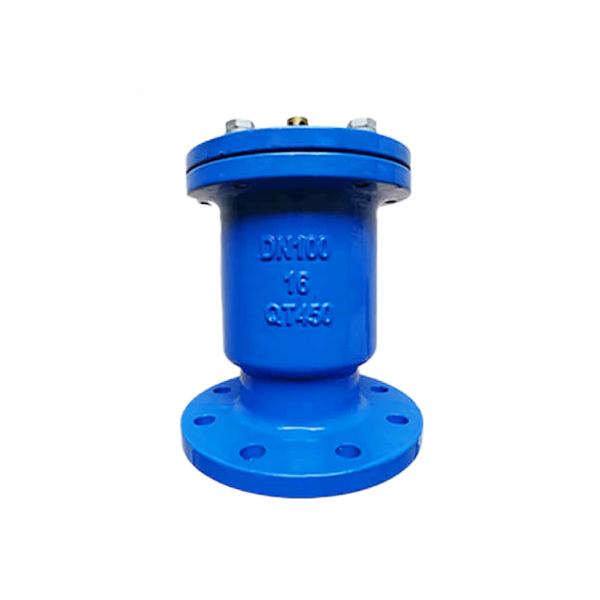When selecting a water works air exhaust valve, several factors should be considered to ensure optimal performance and functionality. Here are some key factors to consider:
System Pressure:
The operating pressure of the water works system is a critical factor in selecting the appropriate air exhaust valve. The valve should be capable of withstanding the maximum system pressure without leakage or failure.
Flow Rate:
Consider the anticipated flow rate of the system to determine the size and capacity of the air exhaust valve. The valve should be able to accommodate the expected flow rate and efficiently remove air from the system.
Air Handling Capacity:
Evaluate the air handling capacity of the valve, which refers to its ability to effectively remove air from the system. The valve should have sufficient capacity to vent air at an appropriate rate, preventing air pockets or air-related issues within the system.

Valve Type:
There are different types of air exhaust valves available, such as automatic float-type valves, automatic air release valves, and combination air valves. Each type has its own advantages and applications. Consider the specific needs of the water works system to determine the most suitable valve type.
Location and Installation:
Consider the installation environment and location of the air exhaust valve. Ensure that the valve is easily accessible for maintenance and inspection. Additionally, consider factors such as the presence of corrosive elements, temperature variations, and potential mechanical damage that may impact the valve’s material selection and durability.
Material Compatibility:
Assess the compatibility of the valve materials with the water quality in the system. Factors such as water composition, temperature, and potential contaminants should be considered to select materials that are corrosion-resistant and suitable for long-term operation.
Maintenance Requirements:
Evaluate the maintenance requirements of the air exhaust valve. Consider factors such as ease of access, frequency of maintenance, and any specific maintenance procedures or requirements associated with the valve. Select a valve that aligns with the available maintenance resources and schedule.
Standards and Regulations:
Ensure that the selected air exhaust valve complies with relevant industry standards and regulations. Consider any specific requirements imposed by local codes or governing bodies to ensure compliance and proper operation.
Manufacturer Reputation and Support:
Research the reputation and reliability of the valve manufacturer. Consider factors such as their experience, track record, and customer support services. Choosing a reputable manufacturer can help ensure the availability of spare parts, technical assistance, and overall product quality.
By considering these factors, you can select a water works air exhaust valve that meets the specific needs of your system, promotes efficient air removal, and helps maintain optimal performance and longevity.